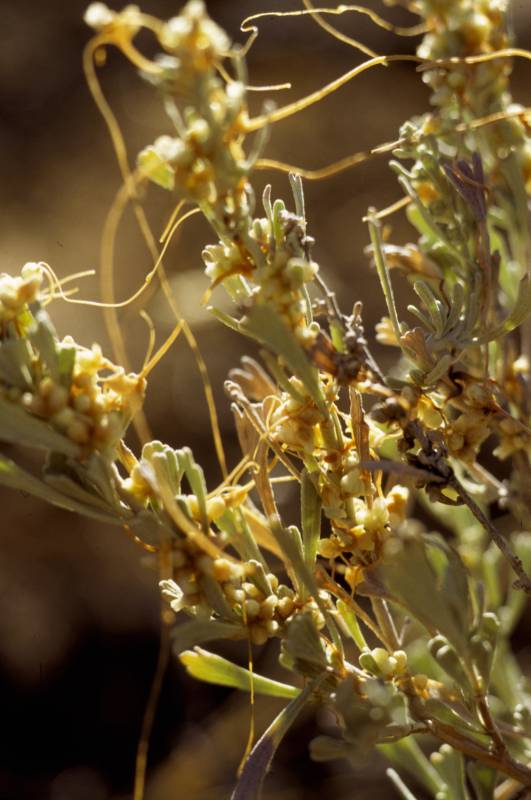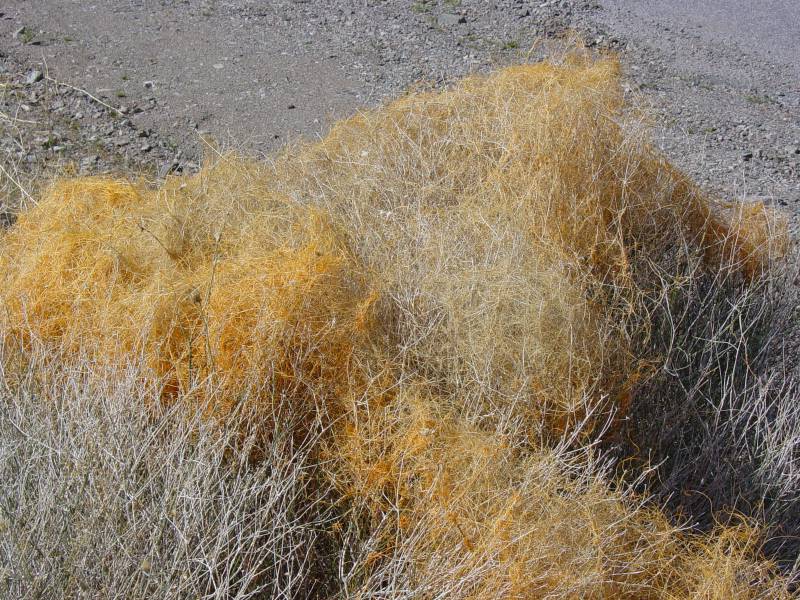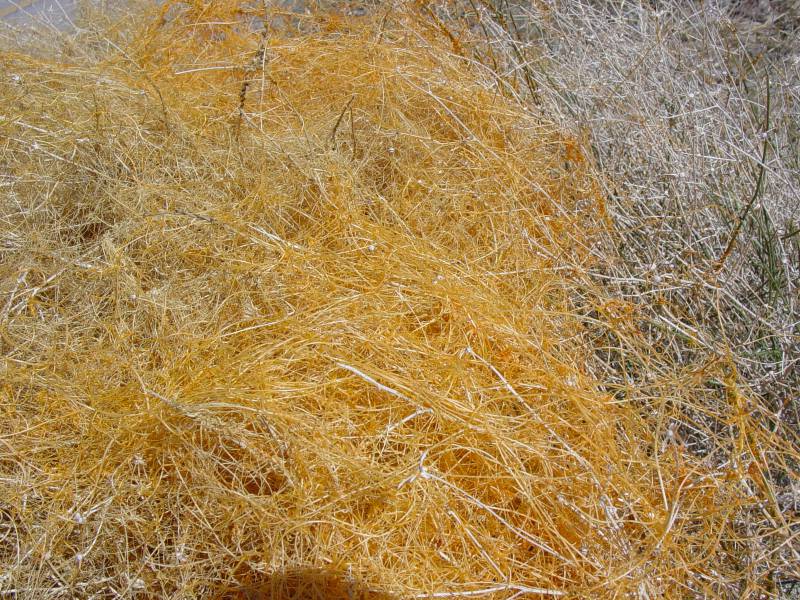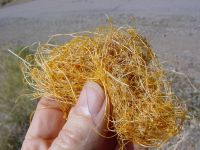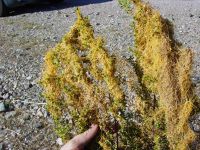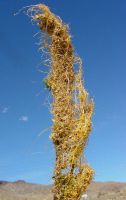Distribution: Occurring east of the Cascades crest in Washington; Washington to Baja California, east to Colorado.
Habitat: Parasitic on Artemisia tridentata, occasionally on other hosts in sagebrush desert.
Flowers: July-August
Origin: Native
Growth Duration: Annual
Conservation Status: Threatened in Washington (WANHP)
Pollination: Bees, wasps
Parasitic, twining, perennial herbs, with very slender, pinkish-yellow to white glabrous stems, often forming large mats.
Leaves reduced to tiny scales.
Flowers usually sessile in small clusters; calyx not fleshy, deeply divided, the 5 lobes oval to orbicular, overlapping, 2 mm. long, the margins irregularly denticulate; corolla bell-shaped, slightly exceeding the calyx, the 5 lobes ovate-lanceolate, overlapping at the base, spreading to ascending, about equaling the tube; stamens 5, inserted just below the sinuses of the tube, slightly exerted, the filaments about equaling the anthers; oval scales covering the base of the filaments nearly entire, united to mid-length; styles 2, 0.5 mm. long; ovary superior, 2-celled.
: Capsule narrowly ovoid, crested around the base of the style.
Publication: Amer. Naturalist 9(6): 348. 1875.
PNW Herbaria: Specimen records of Cuscuta denticulata in the Consortium of Pacific Northwest Herbaria database
WA Flora Checklist: Cuscuta denticulata checklist entry
OregonFlora: Cuscuta denticulata information
E-Flora BC: Cuscuta denticulata atlas page
CalPhotos: Cuscuta denticulata photos

